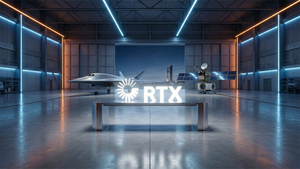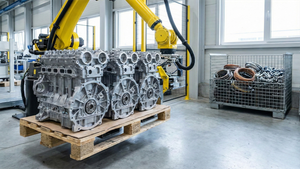AI Propels Retail into a New Era: Autonomous Microstores and Intelligent Inventory Slash Costs

The retail landscape is undergoing a profound transformation, spearheaded by the latest advancements in artificial intelligence. A significant resurgence of autonomous microstores, once hampered by technological limitations and high costs, is now being fueled by sophisticated AI systems. These innovations are not only making self-operating retail viable but are also revolutionizing inventory management, leading to unprecedented reductions in operational costs across the sector. This shift marks a pivotal moment, promising a more efficient, cost-effective, and customer-centric future for retail.
The Technical Core: AI's Precision in Autonomous Retail
At the heart of this retail revolution lies a suite of advanced AI technologies that address the core challenges of accuracy, efficiency, and cost previously associated with autonomous retail models. Unlike earlier iterations that often relied on extensive and expensive sensor grids, modern AI-powered microstores leverage more streamlined and intelligent approaches.
Specific technical advancements include robust computer vision technology that accurately tracks items and understands customer interactions within the store. Algorithms analyze video footage to map customer movements, identify high-traffic "hot spots," and gauge product engagement, providing invaluable data for optimizing store layouts and product placement. This differs significantly from previous approaches that might have used simpler motion sensors or RFID tags, offering a much richer and more granular understanding of the retail environment. Furthermore, lightweight agentic inventory models are designed for efficient product tracking and management with minimal infrastructure requirements, simplifying operations and reducing setup costs. AI also facilitates the integration of simpler robotics for tasks like item tracking, further cutting complexity and expense. Comprehensive AI-powered operating systems empower retailers to rapidly manage and audit products, inventory levels, planograms, order details, and customer receipts, offering backend analytics to identify the optimal inventory mix for each location and mitigate stockouts. The automation extends to cashierless checkout, handling repetitive tasks and substantially decreasing the need for manual labor, thereby enhancing workforce management efficiency. Initial reactions from the AI research community and industry experts highlight the maturity of these vision and agentic AI models, moving them from experimental stages to practical, scalable solutions.
Competitive Edge: Reshaping the Retail and Tech Ecosystem
This AI-driven transformation holds significant implications for both established retail giants and burgeoning tech startups. Companies that embrace and effectively implement these AI solutions stand to gain a substantial competitive advantage. Retailers adopting AI-powered autonomous microstores and intelligent inventory systems can expect to see dramatic improvements in their bottom line and customer satisfaction.
Major AI labs and tech companies focusing on computer vision, predictive analytics, and robotic process automation are poised to benefit immensely. Firms like Amazon (NASDAQ: AMZN), with its "Just Walk Out" technology, are already leaders in this space, showcasing the potential for disruption to traditional retail models. Startups specializing in AI-driven inventory optimization, store automation, and customer analytics are finding fertile ground for innovation and rapid growth. This development creates a competitive landscape where efficiency and data-driven decision-making become paramount. Companies lagging in AI adoption risk being outmaneuvered by more agile, technologically advanced competitors who can offer lower prices, better product availability, and a seamless shopping experience due to reduced operational overheads. The market positioning shifts towards those capable of integrating sophisticated AI into their core operations, fostering a new era of strategic advantages based on technological prowess.
Broader Significance: A Leap Forward for AI in Practical Applications
The successful deployment of AI in autonomous microstores and inventory management signifies a major leap forward for AI within the broader commercial landscape. It demonstrates AI's capacity to move beyond theoretical applications into tangible, cost-saving, and efficiency-boosting solutions for a fundamental industry. This development fits into the broader trend of AI becoming an indispensable tool for operational excellence, mirroring its impact in logistics, manufacturing, and healthcare.
The impacts are wide-ranging: from significantly reducing retail's carbon footprint through optimized supply chains and waste reduction to creating more resilient and responsive retail operations. Potential concerns, however, include the displacement of human labor due to automation and the ethical implications of pervasive surveillance in retail environments, even if for inventory tracking. Compared to previous AI milestones, such as early successes in natural language processing or image recognition, this represents a more integrated and systemic application, showcasing AI's ability to orchestrate complex real-world processes end-to-end. The ability to cut overstocking and waste by 40% and decrease labor costs by 60-70% through predictive inventory management and automation sets a new benchmark for AI's economic impact.
The Road Ahead: Future Developments and Challenges
Looking ahead, the evolution of AI in retail promises even more sophisticated applications. Near-term developments are likely to focus on further refining AI's predictive capabilities, allowing for hyper-personalized shopping experiences in microstores and even more dynamic inventory adjustments based on real-time micro-market fluctuations. We can expect AI to enable seamless integration between online and physical retail, creating truly omnichannel experiences where inventory is perfectly synchronized across all touchpoints.
Potential applications on the horizon include AI-powered visual merchandising that dynamically adjusts displays based on customer demographics and behavior, and proactive maintenance of microstore infrastructure using predictive analytics. Challenges that need to be addressed include the continued development of robust, privacy-preserving AI systems, ensuring data security, and managing the societal transition as retail roles evolve. Experts predict that AI will increasingly become an invisible layer underpinning all retail operations, making stores smarter, more efficient, and inherently more adaptable to changing consumer demands and market conditions. The focus will shift towards creating AI that can learn and adapt with minimal human intervention, effectively creating self-optimizing retail ecosystems.
Comprehensive Wrap-up: A New Dawn for Retail Efficiency
In summary, the latest applications of AI in the retail industry, particularly in autonomous microstores and AI-powered inventory management, represent a monumental shift towards greater efficiency and cost reduction. Key takeaways include the dramatic reduction in operational costs through automation, the unprecedented accuracy in demand forecasting and inventory optimization, and the revitalization of autonomous retail models. This development is not just another incremental improvement; it is a foundational change that redefines how retail businesses operate and compete.
This moment marks a significant chapter in AI history, demonstrating its capacity to deliver tangible, bottom-line benefits in a consumer-facing industry. The long-term impact will be a more streamlined, sustainable, and responsive retail sector, capable of meeting consumer needs with unparalleled precision. In the coming weeks and months, watch for continued innovations in AI-driven personalization, further integration of robotics in microstore operations, and the emergence of new business models built entirely around intelligent automation. The retail world is undeniably entering an exciting, AI-powered future.
This content is intended for informational purposes only and represents analysis of current AI developments.
TokenRing AI delivers enterprise-grade solutions for multi-agent AI workflow orchestration, AI-powered development tools, and seamless remote collaboration platforms.
For more information, visit https://www.tokenring.ai/.
More News
View More




Recent Quotes
View More
Quotes delayed at least 20 minutes.
By accessing this page, you agree to the Privacy Policy and Terms Of Service.